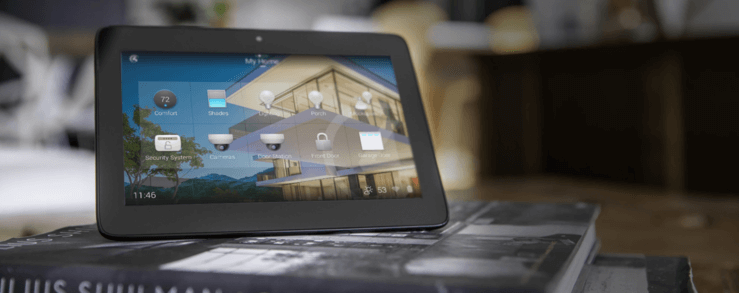The Pros and Cons of a Smart Home

In the Internet age, here's no shortage of devices you can turn on and off just by pushing a button on your phone. A smart house offers responsiveness at your fingertips, allowing you to adjust everything from the air conditioning to the door locks remotely. A Wi-Fi or Bluetooth connection makes home automation possible, even allowing you to take charge of home devices if you are hundreds of miles away. As with everything else, however, there are both benefits and drawbacks to this technology. What are the pros and cons of a smart home?
Pros
Centralized home automation makes it much easier to do any task in one spot. While many devices offer smart functionality, there are limited options to bring every device under one operational umbrella: an Alexa smart home platform may be able to turn up the volume on your speakers, but may not be able to turn on the heating. A smart hub bridges this gap by providing an all-in-one automation center.
Additionally, one of the major advantages to a smart house system is the ability to set a schedule. Want a robot vacuum to start cleaning on Monday morning and a smart television to record your favorite shows on Friday evening? Comprehensive schedules allow you to set your preferences without needing to come back to them time and time again.
While voice functionality is key for some smart platforms, a hub does not need vocal commands to carry out tasks. Remote management is impossible if you are a state (or an entire country) away, which is why a hub feature lets you input tasks and commands without needing to speak to it. With one app for everything, you can dim the lights with the same ease as you can check that the oven has been turned off.
Cons
In a digital age, device vulnerability is a serious issue that many people should not underestimate. Hacking a home router to gain access to information in a smart home, including passwords and credit card data, is a weakness that not all home systems manage well. An identity protection service can make your router more difficult to compromise, while giving added security to your online platforms. However, the risk in a smart home is that it can be hacked no matter the level of protection, necessitating strong safeguards like password protections.
A smart home hub also brings additional expenses. For some homeowners, a smart home's functionality does not have to extend past a few services -- why get a hub that can control the lawn watering if you live in an apartment? A smart home system that incorporates all functions will easily cost several hundred dollars, and may also include a subscription fee.
Conclusion
A smart home hub can be a major benefit to a homeowner, but it can also carry additional risks and costs. Think about how much functionality would benefit your lifestyle before choosing a smart house platform and committing to its services.
Other Blog Posts
Service Areas
Naples/Bonita Springs/Fort Myers/Marco Island, FL
Other areas by request.